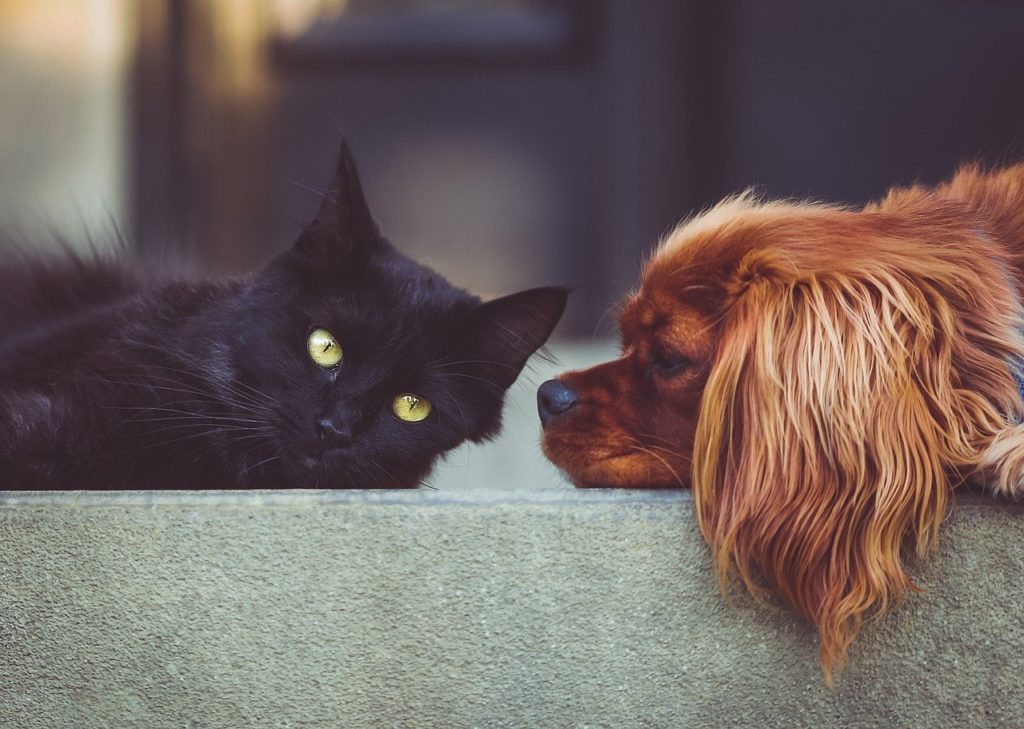Anal glands produce a very foul smell that you won’t soon forget! Have you ever noticed your dog scoot its back end across the carpet? Then they are a candidate for anal gland expression.
Table of Contents
What Are Anal Glands?
They are two sacs on either side of an animal’s anus, within the body. They fill with brown glandular fluid that has a very strong, fish-like odour. This glandular fluid is then expressed via ducts. Typically, they are naturally expressed when your pet has a bowel movement. The combination of the pressure and muscular contractions being produced during the expulsion of the solid feces causes the release of anal glands. The purpose of anal glands is to mark an animal’s territory and lubricate the excretion of feces via the expulsion of the odorous anal gland fluid.
Anal Gland Issues
For many pets, their anal glands may not naturally express as often as they should, or at all. This can occur if the ducts become plugged or if the fluid becomes thickened. This causes the sacs to become very full, causing discomfort for your pet. As a result, an infection can arise, and you may notice that there is swelling near your pet’s anus. If left untreated, the anal sac can rupture, secreting the infected glandular fluid.
What Causes Anal Gland Issues?
There are many causes of anal gland complications. One cause can be diarrhea. If your pet has diarrhea, it can cause the anal glands to over-fill because there is not enough pressure from the passing of feces to facilitate emptying. Being overweight can also be a contributing factor to anal gland complications. That being said, it can also be caused by the presence of a tumour or congenital abnormalities (like the natural positioning of your pet’s anal glands), so it is important to discuss the cause with your veterinarian.
Signs Of An Anal Gland Problem

The most common sign of an anal gland issue is scooting. Scooting is when your pet drags its hind end on the ground with its hind legs lifted. You may also notice that your pet is paying extra attention to its hind end, potentially licking or sniffing it. Another potential sign is inflammation surrounding your pet’s anus. Moreover, if the gland has actually ruptured you may notice discharge and/or a hole from beside the anus on one or both sides.
It is typically more common for dogs to experience anal gland issues but, it does occur in cats as well!
Treatment
Anal gland problems are very common, and typically there is a solution! The first step is to reach out to your veterinarian. If your pet’s anal glands are infected or ruptured, your vet may prescribe antibiotics and pain medication. It is important not to self-medicate your pet at home, leave that task to your veterinarian. If it is determined that the glands need to be expressed, but the glandular discharge is normal then your veterinary team member will likely be able to express them manually.
Preventing Anal Gland Issues
To prevent blockage, infection, and/or rupture from happening again your vet may recommend routine manual anal gland expression or changing to a high fiber diet. Typically, your veterinary team (or sometimes groomer) expresses your pet’s anal glands but, your vet may be open to showing you how to do this yourself! If you are open to learning this technique it could be handy in the long-term, as this could be a life-long requirement for your pet. Most commonly, anal gland expression is not a “one and done”. If your pet requires expression, they will likely require expression throughout their life, unless the cause was diarrhea or was remedied with a diet change.
Another potential remedy for anal gland complications can be the use of supplements such as Glandex chews. These chews add fiber to your pet’s diet to bulk up their stool thus aiding in the natural expression of their anal glands. Results occur in 3-5 weeks and this company actually guarantees their product! Moreover, Glandex also creates wipes to use on your pet’s bottom following expression. As mentioned before, anal glands produce a rancid smell and these wipes quickly rid your pet of that smell!
If your pet has persistent anal gland issues, or they leak anal gland fluid frequently- surgery may be an option. The surgery consists of removing the anal glands. Only your veterinarian can recommend this but, it is something to consider.
It is important to contact your veterinarian if you suspect that your pet has an anal gland issue. As mentioned above, this condition can be uncomfortable and painful for your pet to experience.
Frequently Asked Questions
A key indicator that your pet’s anal glands require expression is if they are scooting. Scooting is when they drag their hind end across the ground or carpet. Another indicator is if they are licking or sniffing their hind end frequently.
When they are full they require manual expression by a member of your veterinary care team. Normally anal glands are expressed naturally when your pet has a bowel movement, this keeps them from becoming full. Some pets are incapable of this and require manual expression. If they are not expressed and remain full, an infection can result leading to rupture.
To express a dog’s anal glands, this needs to be done manually by a trained veterinary professional. If you are interested in learning this technique reach out to your veterinary clinic as they will gladly teach you via a demonstration.
Normally a dog is able to express their anal glands during each bowel movement they have. If your dog is unable to do so, then the anal glands will become full, thus requiring manual expression. If they are not expressed your pet is at risk of developing a painful infection that can result in the rupture of their anal gland(s).
